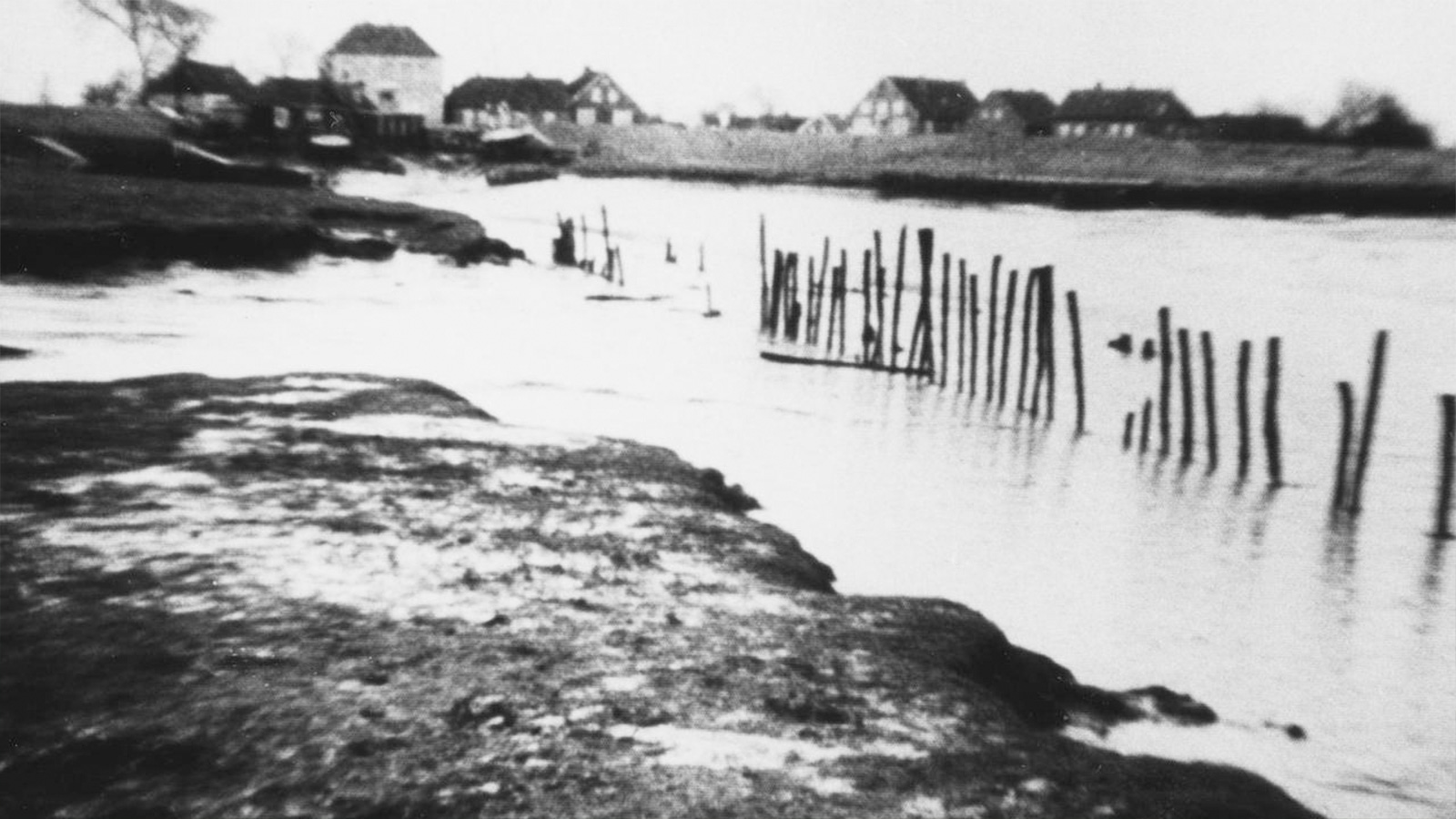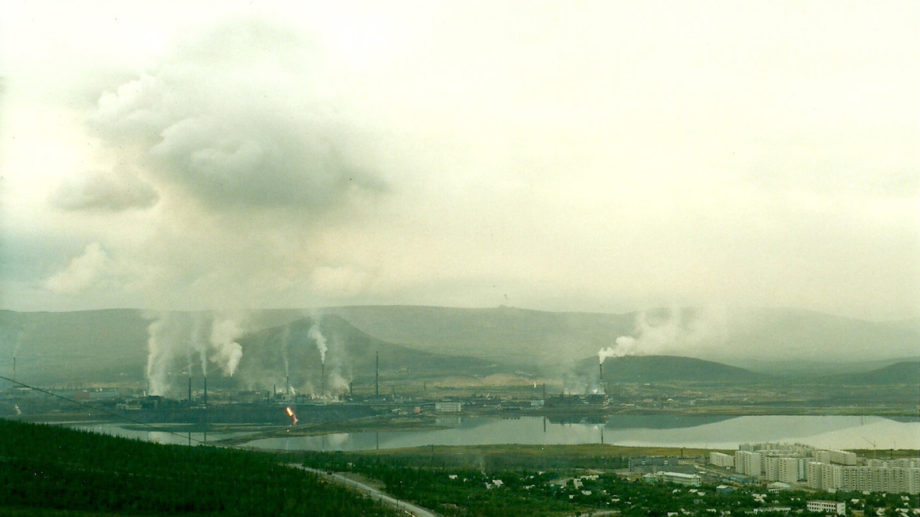A Vision of Resistance: Peter Nestler, a revelatory retrospective of rarely screened work by the German documentarian, will be presented on June 24-28.
Admired by the likes of Jean-Marie Straub and Harun Farocki, Peter Nestler was one of the most important filmmakers to emerge from postwar Germany. From his early films about the changing realities of rural and industrial areas in Germany and the UK, to his work for Swedish television, Nestler has remained a precise observer of the poetry and politics of labor, crafting meticulous portraits of industrial processes, working conditions, and workers themselves, as well as the background of struggle and oppression against which the era’s proletariat toiled. A vigorous yet nuanced opponent of fascism, an excavator of lost histories and a masterful formalist whose works are rich with a materiality all their own, Nestler has spent five decades chronicling how things get made, whether in a factory or at the level of ideology. The Film Society is pleased to host Nestler himself for his first major retrospective in the U.S., including a wealth of new digital restorations courtesy of Deutsche Kinemathek.
Presented in partnership with the 2017 Robert Flaherty Film Seminar and with support from the Goethe-Institut. Organized by Dennis Lim and Dan Sullivan, in collaboration with Ricardo Matos Cabo.
Tickets for A Vision of Resistance: Peter Nestler go on sale June 8 and are $14; $11 for students and seniors (62+); and $9 for Film Society members. See more and save with the 3+ film discount package or $75 All Access Pass. For more information, call the Film Society at 212-875-5600.
Acknowledgments
Deutsche Kinemathek, Courtisane, Christopher Small, Ted Fendt, Barbara Ulrich, Nuno Lisboa, Anita Reher
PROGRAM DETAILS
All films screen digitally at the Elinor Bunin Munroe Film Center unless otherwise noted.
Program 1 (TRT: 66m)
Am Siel (1962, 13m)
Peter Nestler’s first film presents life in a small seaside village from the perspective of an old floodgate.
Essays / Aufsätze (1963, 10m)
His second film is a poetic document of the daily routine of a rural primary school in the village of Reid, Switzerland, told through the children’s own words and voices.
Die Judengasse (1988, 43m)
Nestler traces the history of Frankfurt’s Jewish ghetto from the middle ages to the present day.
All three digital restorations courtesy of Deutsche Kinemathek, Berlin.
Saturday, June 24, 2:00pm
Tuesday, June 27, 7:00pm
Program 2 (TRT: 91m)
Ödenwaldstetten (1964, 36m)
Nestler evokes the country’s transformation by describing the changes brought by industrialization to a Swabian village in the 1960s. Digital restoration courtesy of Deutsche Kinemathek, Berlin.
Mülheim (Ruhr) (1964, 14m)
This dialogue-free short is edited to music and the rhythms of change in a small town in the Ruhr region. Digital restoration courtesy of Deutsche Kinemathek, Berlin.
A Working Men’s Club in Sheffield (1965, 16mm, 41m)
Exemplifying the musicality of much of Nestler’s work, this paean to the proletariat depicts the hard work and leisure time of those gathering at the Dial House Working Men’s Club in Sheffield.
Saturday, June 24, 3:30pm (Q&A with Peter Nestler)
Tuesday, June 27, 8:30pm
Program 3 (TRT: 96m)
The North Calotte (1990/91, 16mm, 90m)
This extraordinary journey through Northern Europe chronicles the devastating impact of industrialization on the region’s environment and indigenous cultures. It is also a eulogy to the landscape, the Sami people, and the preservation of their customs and traditional means of survival.
The Waiting (1985, 16mm, 6m)
A plea against the destruction of the Swedish national television archives, The Waiting is composed of archival photographs and narrates the history of a tragic mining accident that occurred in North Silesia in the 1930s.
Prints courtesy of Deutsche Kinemathek, Berlin.
Saturday, June 24, 6:30pm (Q&A with Peter Nestler)
Program 4 (TRT: 78m)
How to Make Glass (Manually) (1970, 24m)
Fos-Sur-Mer (1972, 24m)
Shot in the commercial harbor of Fos-sur-Mer in Southern France, this film denounces the destruction of the region and the poor living and working conditions caused by industrialization and exploitation by oil corporations. Digital restoration courtesy of Deutsche Kinemathek, Berlin.
About the History of Paper, Pt. 1 (1972/73, 16mm, 24m)
In the 1970s, Peter and his wife, Zsóka Nestler, collaborated on a series of educational films for television that focused on craft-making. These “biographies of objects” are rigorous investigations into the history of working techniques, production processes, and materials. This selection presents three of these masterfully crafted documentaries, which pay close attention to detail and explore the relations between economics, politics, and history. Digital restoration of How to Make Glass (Manually) courtesy of Deutsche Kinemathek, Berlin; print sources for Mining/Ironworks Pt. 2 and About the History of Paper, Pt. 1 Deutsche Kinemathek, Berlin.
Saturday, June 24, 9:00pm

Siel
Program 5 (TRT: 67m)
Images from Vietnam (1972, 16mm, 24m)
An emotional condemnation of the U.S.’s role in the war in North Vietnam, composed of photographs by Thomas Billhardt, this film depicts the dire living conditions and the suffering of children in the populations of destroyed villages. Print courtesy of Deutsche Kinemathek, Berlin.
Spain! (1973, 43m)
Filmed in Spain, Finland, Sweden, and West Germany, Spain! investigates ideas of internationalism and solidarity, using personal testimonies from former members of the International Brigades who joined the Republican side during the Spanish Civil War and from members of the Workers’ Commissions (Comisiones Obreras). Digital restoration courtesy of Deutsche Kinemathek, Berlin
Sunday, June 25, 2:00pm
Monday, June 26, 7:00pm
Program 6 (TRT: 102m)
In the Ruhr Region (1967, 34m)
Nestler is unsparing in his reckoning with Germany, its fascist history, the treatment of local and migrant workers, and the political stagnancy in the years following the war. Digital restoration courtesy of Deutsche Kinemathek, Berlin.
Foreigners Pt. 1 (1976/77, 16mm, 44m)
Nestler relates the histories of shipbuilding, armaments, and war in Europe to the exploitation of labor and the circulation of knowledge and capital between countries. Print courtesy of Deutsche Kinemathek, Berlin.
Sunday, June 25, 3:30pm (Q&A with Peter Nestler)
Wednesday, June 28, 9:00pm
Program 7 (TRT: 89m)
From Greece (1965, 16mm, 28m)
Just as urgent today as it was during Greece’s political crisis of 1965, this look back at the anti-fascist struggle and resistance in the 1940s is a warning against the re-emergence of fascism. Print courtesy of Deutsche Kinemathek, Berlin.
Introduction to Arnold Schoenberg’s “Accompaniment to a Cinematographic Scene” (Straub-Huillet, 1972, 14m)
Nestler appears in Huillet and Straub’s film, which is based on Schoenberg’s opus, subtitled “Threatening Danger, Fear, Catastrophe.” Like From Greece, it deals with the emergence of fascism in Europe, in this case the persecution of Jews. Digital restoration.
Being Gypsy (1970, 47m)
One of Peter and Zsóka Nestler’s most important works, the film confronts the persecution of the Roma and Sinti in Germany under Nazism and its persistence after the war. Print courtesy of Deutsche Kinemathek, Berlin.
Sunday, June 25, 6:15pm (Q&A with Peter Nestler)
Wednesday, June 28, 7:00pm
Program 8 (TRT: 84m)
Up the Danube (1969, 28m)
Peter and Zsóka Nestler’s film follows a riverboat upstream, excavating the Danube’s layers of history from Roman times to the present, in one of their most beautiful works, which condenses many of the themes to which he would return. Digital restoration courtesy of Deutsche Kinemathek, Berlin.
The Hollow People (2015, 4m)
In Nestler’s animated adaptation of a short story by Israeli writer Etgar Keret, a man recalls his childhood fears, rendered in ink drawings, oil paintings, and wooden masks, with music by Alban Berg.
Death and Devil (2009, 56m)
Nestler explores and wrestles with the contradictory biography of his Swedish grandfather, Count Eric von Rosen, an aristocrat with a serious interest in ethnology and anthropology who undertook expeditions to Africa and South America. He embodied the colonial “adventurer” of his time, whose avid interest in other cultures was tainted by racist stereotypes and blind to the systematic decimation of those cultures. Meanwhile, back in Sweden he supported the Finnish counter-revolution and later on Nazism in Germany. The film delves deeply into a vast array of archival materials (stills, journal entries) to reconstruct and question the Count’s ideology and self-image. Print courtesy of Deutsche Kinemathek, Berlin.
Sunday, June 25, 8:45pm
Program 9
Pachamama – Our Land (1995, 90m)
Wrote Peter Nestler, “This film is about the indigenous cultures of Ecuador, of what is past and what is preserved, of destruction and resistance, of persisting in new ways, of music in the villages high up in the Andes, of music in the cities and in a tropical climate among descendants of African slaves. The film is about Earth, about working with Earth, sacred to the indigenous people. An account of beauty that silences, of friendliness, also grief.”
Monday, June 26, 8:30pm




